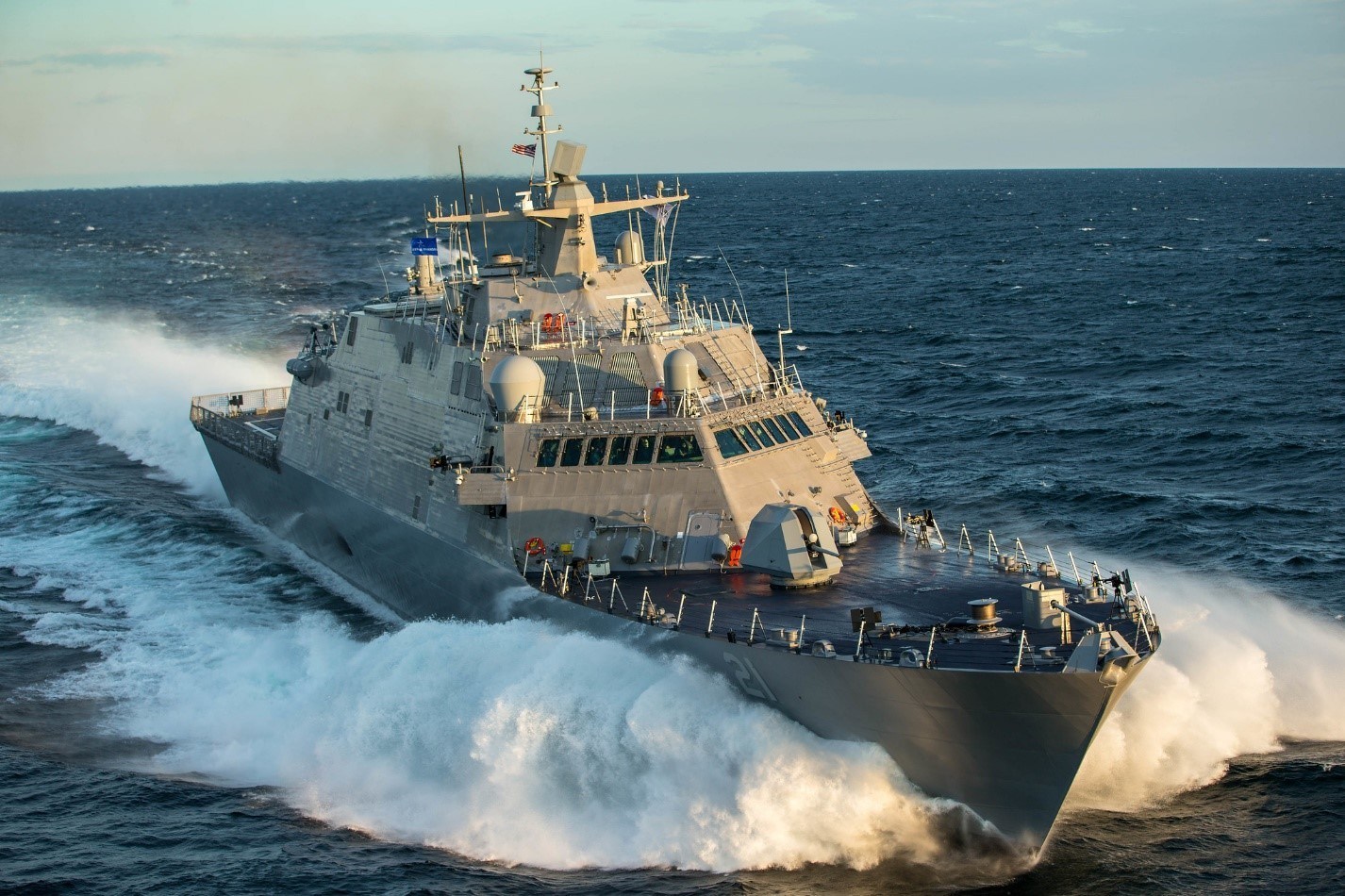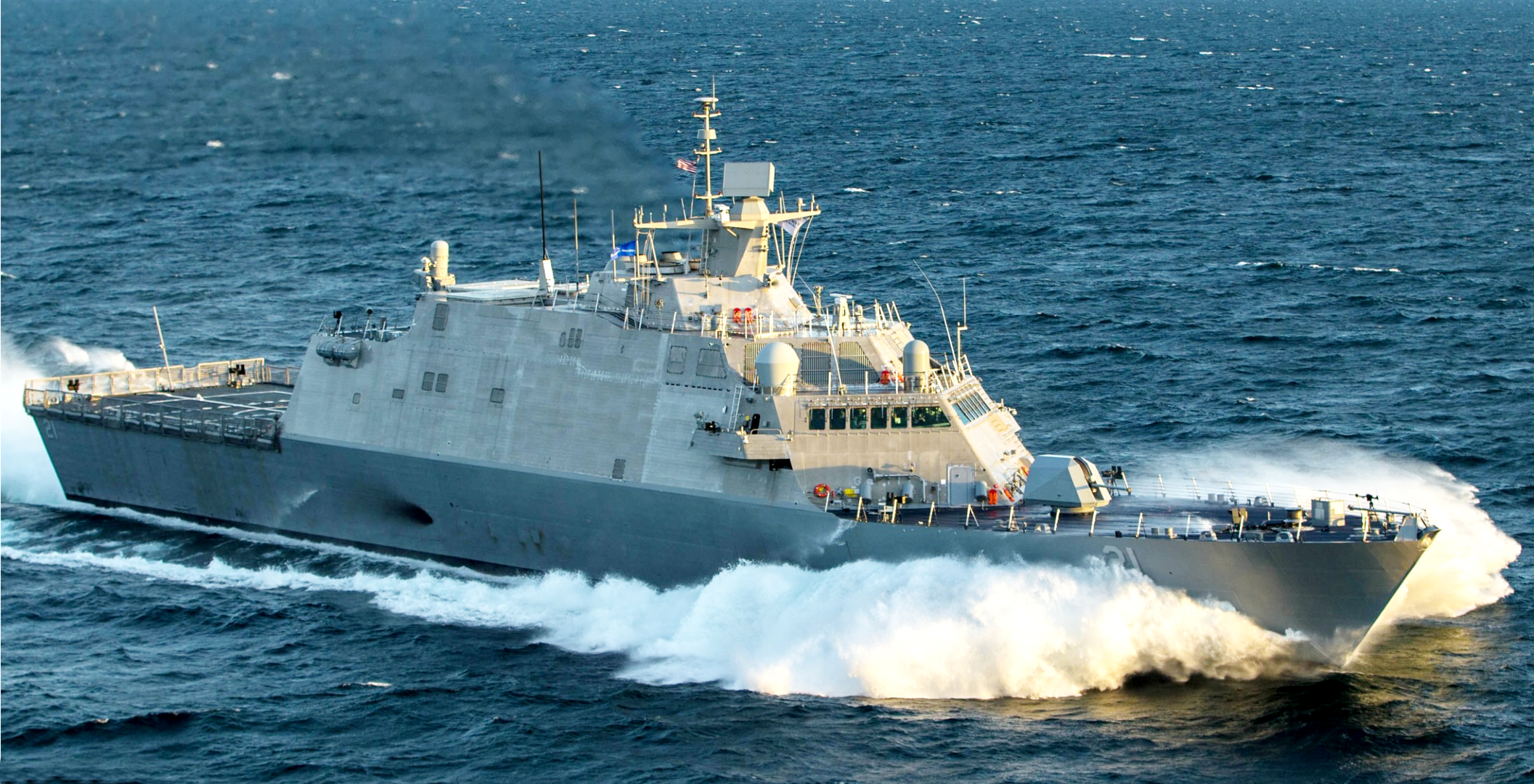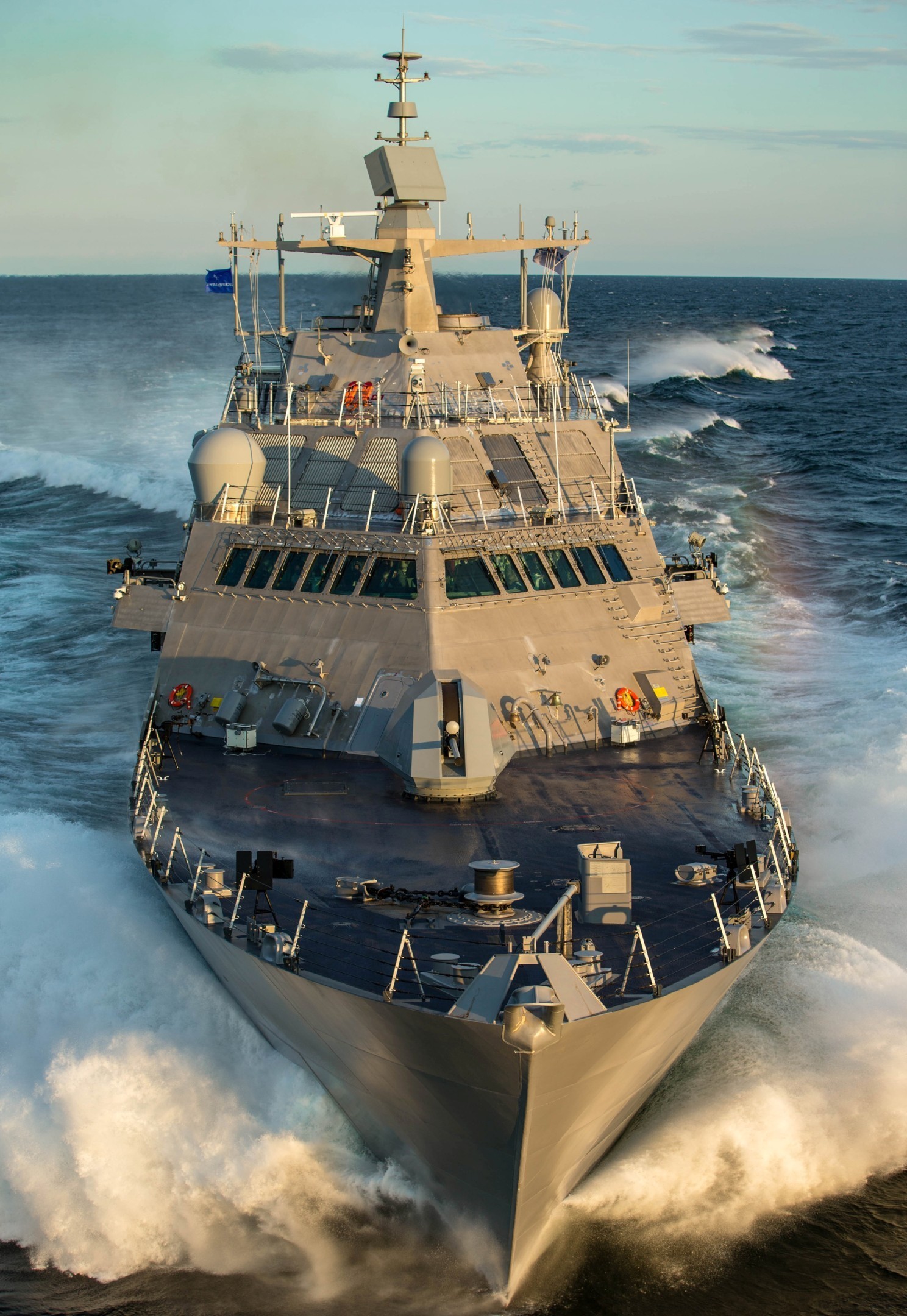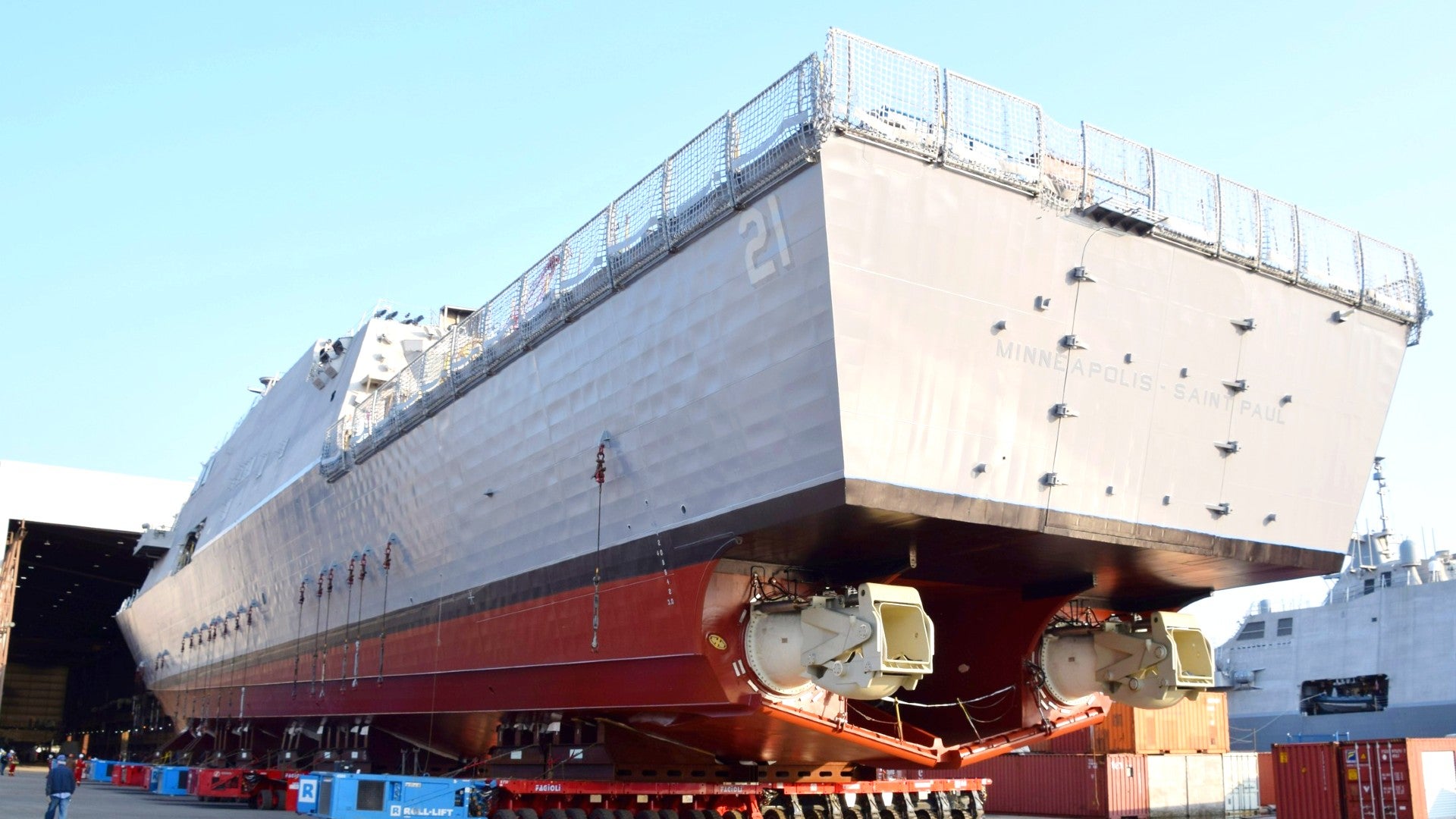The U.S. Navy is rebuilding the Littoral Combat Ship USS Minneapolis-Saint Paul (LCS-21) after a retrofit of a critical component in the ship’s propulsion system. The same issue that was repaired on the Minneapolis-Saint Paul affects the propulsion systems on all twelve of the other Freedom-class Littoral Combat Ships (LCS) that have been launched to date. The problem-prone ships are now facing a lengthy and costly design fix process in addition to some being decommissioned far earlier than projected. To make matters worse, the Navy announced this week that it will likely take years to make the planned fixes on the rest of the Freedom-class LCSs.
This week, LCS deputy program manager Howard Berkof told USNI News that the retrofit as currently planned could take years to implement throughout the fleet. The issue aboard the USS Minneapolis Saint-Paul and other LCS concerns the bearings of a critical combining gear between the ships’ gas turbines and their diesel engines. The turbines can be used to provide extra power for the ships’ water jet propulsion systems, allowing them to reach speeds of over 40 knots, a core requirement of the ships during development. The ships can only reach between 10 and 12 knots with their diesel engines alone.

The bearings aren’t easy to replace due to the placement of the combining gear deep within the design’s architecture. “It’s a very complex fix to replace the bearings on the combining gear. It’s a very tight space, there’s a lot of interferences that have to be removed,” said Berkof this week, according to USNI News. The Navy, primary contractor Lockheed Martin, and the combining gear’s German manufacturer RENK AG have proposed three different methods of repairing the gear, one of which involves cutting through the hull in the middle of the ship.
The method used to repair the Minneapolis–Saint Paul involved dropping the gear into the ship’s mission bay and removing it through a door in the aft of the hull. The ship will now undergo sea trials to determine the effectiveness of the design fix. The commissioning of the Minneapolis-Saint Paul
has been delayed due to the defect, and a date has still yet to be set for the occasion.
The Navy issued a statement earlier this year stating it would halt deliveries of Freedom-class ships until it solved the combining gear issue, and that it had already taken preventative measures to prevent damage to relevant LCSs already launched that are still awaiting the retrofit. Those measures seem to largely consist of restricting the ships to using only one of their two power systems, either the gas turbines or the diesel engines, but not both.
It also remains unclear who will ultimately bear the brunt of the costs associated with replacing the bearings in the combining gears aboard the LCSs. Discussions between Lockheed Martin and the Navy are ongoing to determine the exact amount the service will contribute. However, the Navy’s Howard Berkof told Defense News that there is a “latent defect clause” in the contracts with Lockheed Martin that states that the costs would be shared on such fixes. “We are in discussions with Lockheed Martin about, here’s what the contract says, here’s what we believe is the situation, and we’re talking with them about how we come through that,” Berkof said.

In the meantime, the issue has already become so severe that Navy has already laid out a timeline for decommissioning two relatively young Freedom-class ships, USS Detroit (LCS-7) and USS Little Rock (LCS-9), that have had particularly bad issues with their combining gears. The service plans to decommission the USS Freedom on September 30, 2021, while Fort Worth, Detroit, and Little Rock are slated for March 31, 2022.
Congress previously approved the decommissioning of USS Freedom (LCS-1) and USS Independence (LCS-2), but blocked the Navy’s attempt to rid itself of USS Fort Worth (LCS-3) and USS Coronado (LCS-4). USS Independence was decommissioned on July 29, 2021, and the Navy is once again attempting to rid itself of LCS-3 and LCS-4 once again in addition to the troublesome Detroit and Little Rock. The first four LCSs do not share a common configuration with later ships, and the service is of the position that it is not worth the cost to bring them up to the latest standards. As a result, LCSs 1-4 have been relegated to training roles.

The comments made by the Navy’s deputy LCS program manager this week are only the latest grief the service’s troublesome Littoral Combat Ships have faced. The LCS program, as a whole, has so far failed to live up to the promises the Navy made when it began, and has only led to ships that are exorbitantly expensive to operate despite their relatively limited capability sets.
The upcoming sea trials for the USS Minneapolis-Saint Paul will likely help determine the fate of the beleaguered littoral combat ship as well as the rest of the Navy’s ill-fated Freedom-class ships, which have yet to prove themselves worthy of their price tags or fulfill even a portion of their hoped-for potential.
Contact the author: Brett@TheDrive.com
